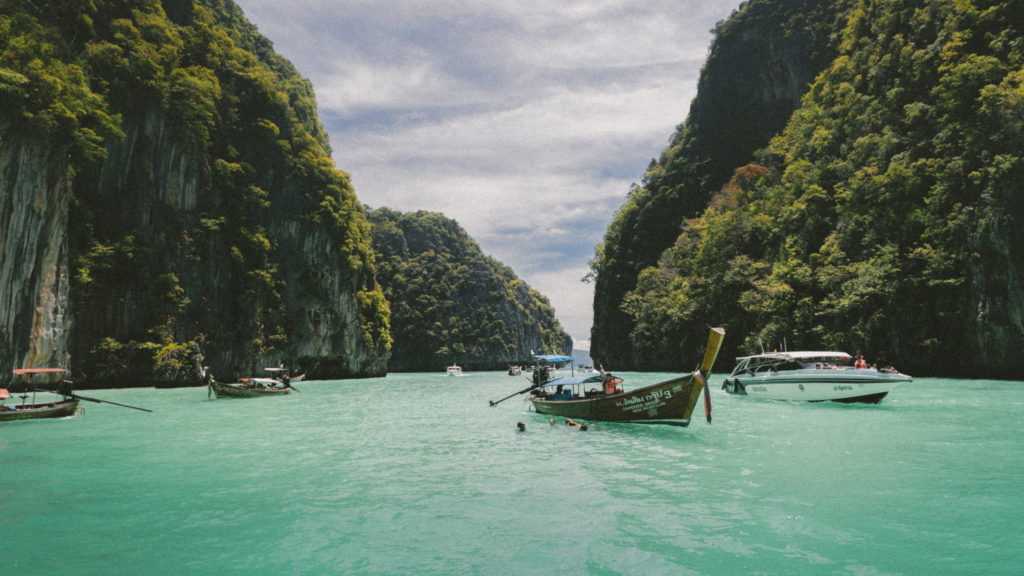What’s the Worst Time to Visit Thailand – Plus 7 Top Tips
Thailand is a stunning country that’s full of exotic landscapes, rich cultural heritage, and delicious cuisine. With its tropical climate and pristine beaches, it’s no surprise that millions of tourists flock to Thailand every year. However, it’s important to keep in mind that there’s a worst time to visit Thailand, and that’s during the monsoon season.
If you’re planning a trip to this amazing country, you need to be well-informed about the weather and what to expect. In this article, I’ll guide you through the worst time to visit Thailand and provide you with seven top tips for making the most of your trip during this time.
The Worst Time to Visit Thailand
Thailand is a tropical country, which means that its climate is hot and humid throughout the year. However, the monsoon season, which usually runs from May to October, is the worst time to visit Thailand. During this time, the country experiences heavy rainfall and strong winds, which can make it difficult to enjoy outdoor activities and sightseeing. The rain and storms can also cause travel disruptions and make it challenging to get around.
Another factor that makes summer the worst time to visit Thailand is the high temperatures. The heat can be oppressive and make it uncomfortable to venture outdoors. If you’re not a fan of extreme heat, it’s best to avoid traveling to Thailand during the summer months.

7 Top Tips for Visiting Thailand During the Worst Time
While the monsoon season and hot summer months might not be ideal for outdoor activities, there are still plenty of opportunities to enjoy Thailand during these times. Here are seven tips to help you make the most of your trip during the worst time to visit.
- Plan ahead and research the weather: Before you travel to Thailand, make sure to research the weather and plan your itinerary accordingly. Knowing what to expect will help you prepare and make the most of your trip, even during the monsoon season.
- Consider alternative destinations within Thailand: While the monsoon season affects the entire country, there are still some regions that are relatively dry during this time. For example, northern Thailand, including Chiang Mai and Chiang Rai, are typically less rainy than the south. Consider visiting these areas if you want to avoid the monsoon season.
- Pack accordingly for the weather: Make sure to pack appropriately for the weather, including waterproof gear, a good umbrella, and breathable clothing. This will help you stay dry and comfortable during your trip.
- Be prepared for limited outdoor activities: During the monsoon season, outdoor activities such as hiking and water sports may be limited. However, there are still plenty of indoor attractions and cultural experiences to enjoy, including temples, museums, and markets.
- Take advantage of indoor attractions and cultural experiences: While the weather might not be ideal for outdoor activities, there are still plenty of opportunities to learn about the local culture and history. Consider visiting temples, museums, and markets, or trying your hand at traditional Thai crafts.
- Consider booking a private tour or guide: If you’re worried about getting around during the monsoon season, consider booking a private tour or guide. They’ll be able to provide you with insider knowledge and help you make the most of your trip, even during the worst time to visit.
- Be flexible and open to adjusting your itinerary: The weather can be unpredictable, and it’s possible that some attractions may be closed or inaccessible during the monsoon season. Be flexible and open to adjusting your itinerary, and consider alternative activities if necessary.
Frequently Asked Questions
What is the best time to visit Thailand?
The best time to visit Thailand is during the cool and dry season, which typically runs from November to February. During this time, the weather is pleasant, and outdoor activities and sightseeing are more enjoyable.
Is it safe to travel to Thailand during the monsoon season?
Yes, it is safe to travel to Thailand during the monsoon season. However, the weather can be unpredictable and may cause some travel disruptions. It’s important to be prepared and flexible, and to take precautions to stay safe during your trip.
Are there any festivals or events that take place during the rainy season in Thailand?
Yes, there are a few festivals and events that take place during the rainy season in Thailand. For example, the Rocket Festival, which takes place in Isan (northeastern Thailand), is a traditional celebration that marks the start of the rainy season. Additionally, the Vegetarian Festival is held in Phuket during the ninth lunar month, which usually falls in October.
Can I still go to the beaches during the monsoon season in Thailand?
While some beaches may be affected by the monsoon season and may have rough waters or limited amenities, there are still plenty of beaches that are accessible during this time. Be sure to research the conditions before heading to the beach and take necessary precautions.
Are prices higher or lower during the monsoon season in Thailand?
Prices during the monsoon season in Thailand tend to be lower compared to peak travel season, as there are fewer tourists visiting during this time. This can be a great opportunity for budget-conscious travelers to save some money.
Conclusion
Thailand is a beautiful country with a rich culture and history, and it’s no wonder that millions of tourists visit every year. However, it’s important to be well-informed about the worst time to visit Thailand. The monsoon season and hot summer months can be the worst time to visit Thailand, but with the right planning and preparation, you can still make the most of your trip.
Use these seven tips to help you have a great time in Thailand, even during the worst time to visit. Just remember to be flexible, open to adjusting your itinerary, and prepared for any weather conditions. Safe travels!
- What to Wear in Cancun by Month & Activity (And Not!) - March 13, 2023
- What to Wear in New York by Month & Activity (And Not!) - March 13, 2023
- What to Wear in Morocco by Month & Activity (And Not!) - March 13, 2023

